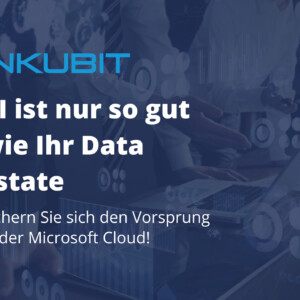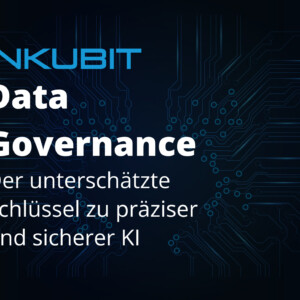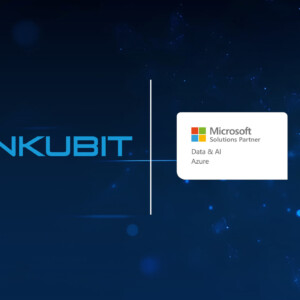Microsoft (MS) Access offers a relational database management system (DBMS) based on mathematical relationships combined with a simple development environment. Numerous templates and a design tool make it easy to create your own database applications, even for beginners with little experience. The purpose of the tool is to enable companies to create their own customized databases for business applications relatively easily and quickly. In this way, even the most diverse processes that would otherwise have to be done manually can be automated. Other third-party industry applications can also be integrated via connectors. Microsoft Access was previously a popular database management system. However, if you are still using Access for your constantly growing company, you may run into a few problems. It is therefore advisable for many companies to migrate their Microsoft Access database to Power Platform. This is because it is time to migrate data away from Microsoft Access at the latest when problems arise with corrupt data, reaching capacity limits or reduced performance.
Here are 10 reasons why you should migrate your Microsoft Access database to Power Platform now and how it will benefit your business.
What is Microsoft Access designed for?
Microsoft Access (MS Access for short) is an application within the Microsoft Office family (Microsoft 365) and is available as a standalone office application or as part of Office Professional (Office package). It is a relational database management system that was launched in 1992. In the process, Microsoft added it to the Office suite, which increased its popularity. Despite the official announcement that Microsoft would remove Access from the online productivity suite in 2018, updates continued to be released.
To summarize, Access was developed to store information for reference, reporting and analysis purposes. This is because it manages data more efficiently than Excel or other spreadsheet programs. Basically, it is a simple do-it-yourself solution - even for people who are not IT experts.
Also, Access can be used to quickly set up a database and create records in it. Here it has functions that make data entry faster and easier. With the help of tools, the database can be sorted and searched, and reports can be created.
Reasons against further use of Microsoft Access
There are of course many scenarios in which Microsoft Access is a suitable Solution Especially for smaller companies or individuals who want a simpler, faster and more cost-effective Solution Microsoft Access is still recommended. However, Microsoft Access presents some challenges that may make it difficult to continue using Access:
Lack of scalability
Microsoft Access is not too well suited, especially for larger and more complex projects. In addition, among other things, it does not scale as well as other database management systems (DBMS), as it can have difficulty processing large amounts of data and multi-user applications.
Lack of scripting ability
Compared to other database management systems, Access is less scriptable. This logically means that it can be difficult to implement complex automation and process control logic.
Security
Also, the security of Microsoft Access databases may not be adequate for critical applications. This is because Access provides some security features, but users may accidentally open, delete, or modify a database without sufficient knowledge of security principles and settings.
Greater effort
Lastly, the use of Access can also result in more time and resources being required. This is because in large companies and organizations, application development is usually a specialized function performed by IT professionals. However, the complexity of Access may require these professionals to familiarize themselves with a new environment, which consequently requires a great deal of time and resources.

10 reasons to migrate a Microsoft Access database to Power Platform
For fast-growing companies that want to scale, and implement larger projects, it is recommended to migrate their Microsoft Access database to Power Platform. Here are 10 good reasons why you should migrate to Power Platform:
1. cloud based
Power Platform is a cloud-based Solution that allows users to access their data from anywhere, without having to rely on a specific hardware or software configuration.
2. simple integration
Ms PowerPlatform can be integrated with other cloud platforms such as Office 365, Dynamics 365 and Azure. This makes it easy to access other tools and data and use them to create complex applications.
3. easier creation of applications
Power Platform offers various tools such as PowerApps, Power BI and Microsoft Power Automate, with which users can quickly and easily create applications and visualize data. Users can work on a low-code/no-code development platform that requires little to no programming knowledge.
4. mobile device support
PowerApps can run on mobile devices, which means users can create applications and access their data on the go.
5. higher scalability
Power Platform can scale seamlessly to meet the needs of the business. Organizations can quickly expand applications and workflows to meet the needs of their users.
6. integration with machine learning
Power Platform supports machine learning models that can be integrated into applications. This allows users to intelligently analyze data and gain insights.
7. simple cooperation
Power Platform offers easier collaboration between different teams and departments. You can easily share applications and data and work together on projects.
8. higher security
Power Platform offers advanced security features such as role-based access control, encryption, and monitoring. This gives users peace of mind that their data is protected.
9. lower costs
Compared to Microsoft Access and other traditional applications, Power Platform can provide a more cost-effective Solution This allows companies to quickly create and manage applications without the need for expensive developer resources.
10. future oriented
Microsoft Access is an outdated tool and is no longer actively developed. Power Platform, on the other hand, is continuously developed and improved to meet the needs of companies and users.
Conclusion - When is it worth migrating your Microsoft Access database to Power Platform?
Basically, there are also many scenarios in which Microsoft Access is a suitable Solution . Especially for smaller companies or individuals who need a simple, fast and cost-effective Solution , the use of Microsoft Access is recommended. For fast-growing companies, however, Microsoft Access is not the best Solution in the long term.
More scalability
Increasing business growth today requires more scalability and support for multiple users.
Automation and data analysis
In addition, a growing business needs powerful automation capabilities to automate their business processes as well as powerful data analytics capabilities.
More security
Furthermore, security is more important than ever, especially nowadays in the wake of the ever-increasing digital transformation.
Power Platform as a powerful alternative in the digital transformation
Microsoft Power Platform offers all this - and more. This is because Power Platform offers high scalability and a cloud-based Solution for access from anywhere. In contrast to Access, it offers powerful automation functions and data analysis functions to automate business processes. In addition, Power Platform is highly rated in terms of security - it offers enhanced security features, including encryption and access controls. This is essential, especially for multiple users. Power Platform also provides a more comprehensive and modern development environment, including low-code and no-code tools. Finally, Power Platform can also be integrated with other Microsoft products and services as part of the Microsoft ecosystem.
In short...
In summary, the Power Platform offers a modern, flexible and powerful alternative to Access. It offers a more comprehensive range of functions, more flexible licensing and better integration with other Microsoft products and services and it is highly recommended, especially for larger, steadily growing companies with more complex projects.
You can find out more about access migration here.







